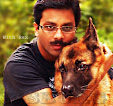Some Very Important Suggestions for Effective Puppy Training
Providing obedience-training is one of the most important parts of sensible dog-raising and it shapes and balances the fine link between the canonical spirit and the human society, making both the aspects acceptable to each other. Sit on command training is a comparatively easy one to handle by both the dog and his owner. Sit on command is often taken as one of the primary steps towards training your dog about obedience, and acts as a base for the dog to develop and learn more advanced forms of obedient training.
Early start is suggested
The training makes your dog look good and admirable near the guests as this prohibits him from jumping on them to greet them. The best time to start sit command training is when your dog is still in his puppy-hood as that is the time when the lessons have a long-term effect on the dog's mind and life. So earlier the better! Therefore it is important for you to build a tight bond and trust with your puppy from the very beginning. A strong owner-dog bonding will help you build trust and confidence in him for you. Eventually he will start treating you as a leader.
Detaching distractions is suggested
To begin with, a small room (adequately airy and clean) should serve your training purpose. A small cozy closed space will help you detach your pup from any sort of distraction. You can choose any time of the day to start this training. It is important to keep in mind the following factors while teaching your dog sit on command.
Patience and positive attitude is suggested
It is important that your puppy grows fondness, dependency and loyalty towards you, which again depends on how to treat him and how you instill lessons in his mind with positive reinforcement.
As an owner you should understand that puppies cannot be expected to stick to one kind of game for a long period of time and hence any training should not be an elongated process. There should be repetition as many number of times as possible with intermediary play and walk breaks one. An elongated session of teaching a particular trick will make the puppy feel confined and tired in the process. Make the process fun-filled with suggested breaks and praises to make the puppy enjoy the training. Patience and positive attitude is very important here.
Maintaining consistency in everything related is suggested
Very important... you should be very consistent and yet informal with the training, so that your dog does not take it as a burden and become lethargic. choice of command words must be consistent. If you choose the word "Down" to teach him to lie down, then NEVER use "Lie" or "Lie Down" for the same purpose. Consistency in choice of words and your action is the key to the success story! The most important thing to keep in mind as an owner is to make sure that your dog is understanding what you are asking him to do for you. If he is not understanding, then there's something that you need to fix at your end... there's no problem with the dog.
Helping in associating words with actions is suggested
Remember, your dog doesn't know human words! Use of a particular word, for example, 'Sit' will become a command, if and only if you can successfully help your puppy associate your word with the desired action. Dictionary meaning of a word doesn't matter with your dog. What matters is the association of sound of the word with the action you help him to associate with.
Reward based training is effective and suggested
It is important for the owner to help the dog relate action with the sound of a word and then use rewards to practice it. However, Reward based training process are misused by many trainers.
Reward Based Training is not always Positive Reinforcement Training, contrary to the popular belief. A "Reward" is a stimuli that is presented before the dog to initiate teaching good behavior. But a stimuli that stimulates a dog to initiate a bad behavior is thew on set of failure. Because often times, the trainers are not skilled enough to start the implement a Reward based training process. And consequently end up making the stimuli make the dog behave undesirably and then get punished as corrective measures... This entire process is unscientific and illogical.
However, many dog trainers, consider the Reward Based Training methods as unsuitable, because they think a reward is an opportunity for the dog to fail. They, instead, take "Reward" away from their training process and apply other approaches that they think better for the dog, because taking away the reward is killing the opportunity for the dog's failure. A Positive Reinforcement is the reward based training when the scope doesn't exist for the dog to make mistake and get punished, but only get reward for desirable behavior and the negative behaviors is tactically ignored by the trainer.
Related Read: Myth about food based reward training
Keeping a realistic expectation is suggested
Have realistic expectations from your dog, as he tends to take time to grasp your command and act accordingly. There's not one dog on this planet that cannot be trained. All dogs can be trained; They are Caninesteins! All you need is to have a realistic expectation from your dog. If you have enough Time, Patience, and Scientifically Backed Practical Knowledge then it is surely possible.
You cannot expect from an un-socialized dog to behave calm in front of other animals and strangers. That's not a realistic expectation. Once the dog is socialized you can apply corrective training methods to rectify his behavioral problems with yourself being patient and having positive attitude. This is realistic expectation.
Related Read: Rehabilitating and Un-socialized and Shy Dog
Deter from punishing your puppy for slow or no progress, as dogs hardly has a sense of reason or time and hence tends to get baffled and confused when they are treated badly. This is the best conclusion I have come up with!

























0 comments:
Post a Comment